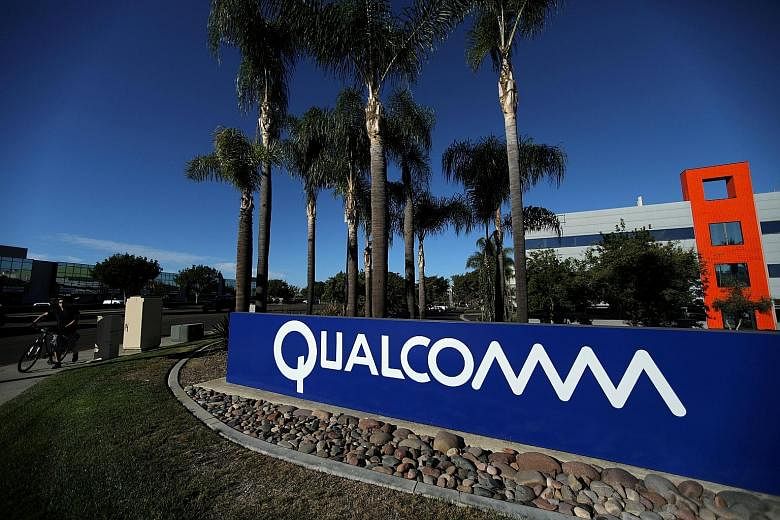NEW YORK • The death of Broadcom's bid for Qualcomm at the hands of Mr Donald Trump leaves a worrying fog for others to navigate. The US President blocked the Singapore-based chipmaker's US$117 billion (S$154 billion) hostile offer on Monday evening, citing national security concerns.
But torpedoing a deal before it is even agreed, and for vague reasons, adds to fears of protectionism.
Broadcom's suit for Qualcomm always faced long odds. Sure, the chip industry is rapidly consolidating, and some Qualcomm shareholders were tempted by the rich premium on offer. Yet hostile deals rarely succeed, especially in industries where the most valuable assets can walk out the door. The chances of receiving antitrust approval in multiple jurisdictions, including China and the European Union, also looked low despite the aggressive M&A (mergers and acquisitions) tactics of Broadcom boss Tan Hock Eng.
Broadcom, formerly Avago, had started becoming American again, but it is still officially enjoying Singapore's low-tax regime. That is why the Committee on Foreign Investment in the United States (CFIUS) was able to get involved.
Qualcomm may have egged CFIUS on initially, but the committee then undertook an investigation. That may have been hurried, but it contributed to Mr Trump's decision to kill the deal.
Washington's worries include letting China have too much influence over new so-called 5G wireless technologies, but overall the White House order lacks specific reasons.
The document is clear, though, that the transaction must be abandoned "immediately and permanently". That is the case, despite Broadcom's move to redomicile itself and the fact that the immediate risk was Broadcom's nominees being elected to Qualcomm's board, not a merger being agreed - let alone consummated.
The Trump administration portrays this as a one-off. Qualcomm does spend heavily on research and development, and the tighter-fisted Broadcom might have ceded pole position in the 5G race to China's Huawei. That could have had the military worried.
Yet there is also a whiff of the idea that Qualcomm is a national champion to be defended - especially coming right after Mr Trump's imposition of new tariffs on steel and aluminium.
US companies and the economy benefit from overseas capital.
After the recent corporate tax cuts, deficits are going to require continuing investor faith, too. Signals suggesting the country's traditionally open doors are closing run against that need. One result could be to push up the perceived risk and, therefore, the cost of the foreign capital America needs.
REUTERS

